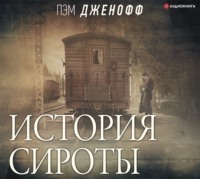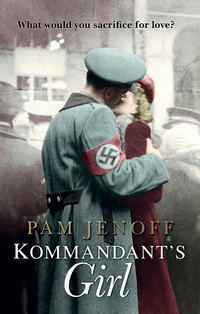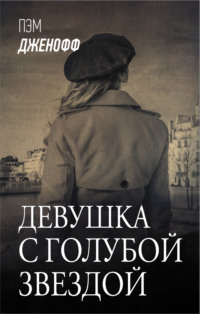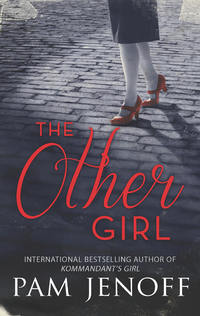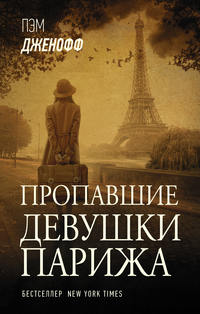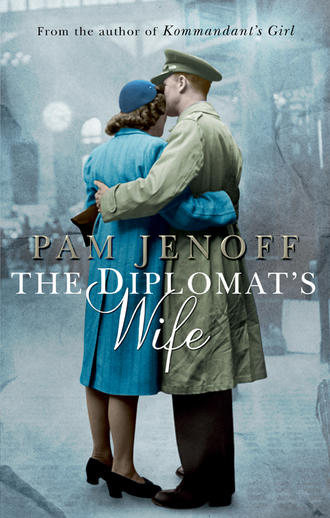
Полная версия
The Diplomat's Wife
“I guess I am.” Paul looks down, as though noticing his wet clothes for the first time. He shrugs. “It’s not a big deal.” It occurs to me then that he has given his only blanket to me.
“Here.” I pull the blanket open. “It’s big enough to share.”
He hesitates, then moves toward me, taking the edge of the blanket and wrapping it around his shoulders. Trembling, I slide closer along the ground, bringing him farther inside the blanket. “May I?” He lifts his arm, asking permission to put it around me. Before I can answer, he draws me close. “Is this okay?”
“Fine,” I reply, hoping that he cannot feel how fast my heart is beating.
“I’m sure the rain will stop soon. Then we can head back.”
But I do not want to head back. I look up at him. His face hovers above mine and his eyes dart back and forth, as though searching for something. Then he lowers his head. His lips brush mine, questioning, asking permission. My first kiss. I am too stunned to react. His hand rises to my cheek and his lips press full and warm on mine. I respond, heat rising in me. Suddenly I freeze, putting my hand on his chest. “Wait …”
He pulls back. “I’m so sorry. I thought you wanted …”
“I do.” I pause, trying to catch my breath. “I mean, I thought I did. But you have a fiancée.”
“Had,” he corrects me. “I think it was over before I left. I mean, we were high school sweethearts. Getting married was what everyone expected us to do, but I’m not sure we were meant to be together, you know?” His words spill out quickly, making it difficult for me to understand what he is saying. “It’s more the idea of having someone back home that I miss.” He pauses. “Anyway, I’m sorry.” Our eyes remained locked. Kiss me again, I think. But I do not want to be the substitute for another woman, not again.
Finally, I turn away. Listening to the rain pound heavily on the roof, I know there will be no possibility of leaving for some time. I lean my head against Paul’s chest, pressing my cheek sideways and feeling the heat that radiates through the damp cloth. He rests his chin on top of my head gently. I take off my glasses, put them on the ground beside me. The shadows dim as the last of the candle burns down. Paul’s breathing grows long and even above me. Enveloped in the warmth of the blanket, I feel my eyes grow heavy.
Suddenly I remember another cabin, larger than this one, outside Lublin where Jacob and I used to hide. Don’t, I think, but it is too late. Jacob’s face appears in the shadows on the wall unbidden, reminding me of the long nights we spent together, anxiously waiting for our contact to arrive and deliver information or supplies. We never slept in that cabin, of course, or even dared to light a candle. Instead, we hid in a dark corner, our heads close to hear each other whispering, constantly afraid of being caught. But Jacob made those nights fun, telling me stories or jokes to pass the time.
Then one night, as Jacob was trying to explain some political concept that I did not quite understand, he stopped speaking. Outside the cabin came footsteps, too numerous and heavy to belong to our lone contact, followed by a dog’s bark. “Quickly,” he whispered, pulling back the bare carpet and opening a hidden panel in the floor. He pushed me down into the tiny crawl space, then climbed in, closing the door. He lay on top of me—there was no other choice—not moving, for what felt like an eternity as the Gestapo walked the floor above us, searching. His heart beat hard against mine. It was in that moment that I realized I was in love with him.
Then the Gestapo were gone, leaving as quickly as they had come. “Are you all right?” Jacob whispered, his breath warm.
“Yes.” My voice cracked. “Fine.”
“Marta …” he began, then hesitated. He lowered his head toward mine. I closed my eyes, expecting to feel my first kiss. But there was nothing. Then I felt him pull back slowly, his weight lessening. I opened my eyes again. “I’m sorry,” he said.
“I don’t understand.”
“We’ve grown close, you and I. And I like you.” Hope rose within me. “But Marta, I can’t. I’m married.”
Married. It was as if I had been punched in the stomach. “Who is she?”
“I can’t say. Not even to you, whom I’d trust with my life. We have to keep it secret for her safety. That’s why I didn’t tell you sooner. Marta, I consider you one of my closest friends. I’m fond of you.” He cleared his throat. “But to be fair, I had to say something before I gave you the wrong impression or things went too far.”
But I want things to go too far, I thought desperately as he opened the crawl space door and climbed out. Of course I did not say this, but followed him out of the shed into the night.
Remembering now, I shiver. A tear runs down my cheek. Stop it, I think. This is not that cabin. Paul is not Jacob. Paul. I look up at him. His eyes are still closed, head tilted back against the wall. He holds me tightly as he sleeps, as though afraid I might slip away. It is madness to think he might like me, I know. And even if he does, in a few hours he will be gone. But at least for the moment, he is mine. I turn inward, pressing my cheek against his chest, clutching the front of his shirt in my hand. My eyes grow heavy.
Sometime later, I awake with a start. I blink several times in the darkness. Inhaling the musty air, I remember the boat and the storm. Was it all a dream? Then, feeling Paul’s arm wrapped around me under the blanket, I know that it was not. I look up at him. He smiles down at me, eyes wide. “Sleep well?”
I blush. How long has he been watching me? “Very well.” It is the truth. Despite sitting upright on a hard floor in soaking clothes, it was some of the most restful sleep I have had since the start of the war. I reach for my glasses. “How long was I out?”
“A couple of hours.”
“Hours?” I leap up and push open the door of the shed. Outside the rain has stopped and the sky just above the mountains is edged with pink. “It’s starting to get light.”
“Almost dawn,” he agrees, and I detect a note of reluctance in his voice. “We should get back.” He stands and rolls the blanket up. I try to smooth my hair with my hands. As I start through the door of the shed, Paul follows too closely behind me, brushing against my side. “Excuse me,” he says, stepping back awkwardly. I turn toward him. He is staring at me, the longing in his eyes unmistakable. My breath catches. I look away quickly, hurrying through the door.
Outside, the night air is cool and still. We walk to the bank and Paul helps me into the boat. Neither of us speaks as he rows quickly across the lake. The air is silent except for some geese calling to one another in the distance. Watching Paul guide the boat toward the opposite bank, I am overwhelmed with sadness. In just a few minutes, he will be gone. We reach the spot on the bank where the fisherman had been the previous night. He hops onto the shore, holds his hand out to me. As I step from the boat, my foot slides on the slippery mud and I stumble. Paul catches me by the shoulders. “Careful,” he says, still holding me. His breath is warm on my forehead.
“Thank you,” I say.
“Marta, I …” he begins softly, then falters. “I want, that is to say, I don’t want …” I lift my eyes to his face, which is strained with sadness and longing. He does not want to say goodbye, either, I realize. I cannot breathe. In that moment, I know that it is not his ex-fiancée he desires. I reach for him, standing on my tiptoes and placing my hand on the back of his neck. Instinctively, I pull him toward me, pressing my lips against his, taking what I’d been too afraid to accept just a few hours earlier. He hesitates for a second, surprised. Then he responds, his mouth warm and strong. Our lips open, drawing us farther into each other urgently.
A horn blares out suddenly and we break apart. Paul straightens, turning toward the noise. “They’re getting ready to go,” he says breathlessly. “We’d better hurry.” He helps me up the bank to the path and we walk quickly toward the palace in silence. Sadness rises in me. Don’t leave, I want to say. But I know that it is impossible.
In front of the palace, the trucks are assembled in a line, waiting to go. Paul turns to me once more. “Marta, I don’t know what is going to happen. I just wish that there was some way …”
“I know,” I reply quickly, forcing my voice not to crack. Everything is happening too fast. My eyes lock with his and I fight the urge to reach out and touch him again. “Be safe.”
“Come on, Paul!” a voice behind him calls impatiently. The first trucks are beginning to pull from the driveway.
“Bye,” he whispers, taking several steps backward, his eyes not leaving mine. Then he turns and runs toward the last of the trucks. I watch as one of the other men reaches down and helps him onto the back. The engine rumbles and the truck begins to move. As it pulls from the driveway, Paul turns back toward me. Our eyes meet again and he smiles, raising one hand. Then, as the truck turns the corner, he disappears.
CHAPTER 5
I stand motionless on the lawn as the sound of the engines fades, staring numbly through the clouds of dust kicked up by the truck wheels. I walk to the porch step and sink down, trying to breathe over the lump in my throat. My eyes begin to burn. I raise my sleeve to my face, inhaling Paul’s lingering, musky scent. I can still feel his lips pressing down on mine. I desperately want to be back in the gardener’s shed, to crawl under the blanket and be close to his warmth again.
Doubt rises in me: Why didn’t I ask him for his address in America? Why hadn’t he offered it to me? Could I really have felt so much for someone I barely knew? Could he? Perhaps I was just another girl in another town. I dismiss this last thought quickly. I know from the way he looked at me that his feelings were real. But now he’s gone. After all I have been through, I suppose I should be grateful for even small moments like last night. Still, I cannot help wanting more.
Enough. I stand up. I should go check on Rose. She will be eager to hear about my night. I head inside and cross the foyer. As I reach the door to the ward, Dava appears in front of me. She blocks my way, arms crossed. “I’m so sorry I didn’t make it back last night,” I begin quickly. “We were halfway around the lake when the storm started.” I skip mention of the rowboat, knowing it will not help my cause. “We had to find shelter so we waited in a gardener’s hut until it stopped.” I study Dava’s face, but there is no sign of anger, only dark circles ringing her bloodshot eyes. I wonder if she was up most of the night caring for Rose, or sitting with her because I was not there. “And then …”
Dava holds up her hand, then places it on my upper arm. “I need you to come with me.” Her grip is gentle but firm as she guides me away from the ward.
“Wait, I was going to tell …” I look back over my shoulder through the doorway, but I do not see Rose. Panic rises in me. Had she been taken for some sort of medical treatment? I turn to Dava. “Where’s Rose?” She does not answer, but looks away. “What is it? What’s wrong?”
“Why don’t we go outside?” Dava tries again to lead me away from the door, but I pull from her grasp.
“No. Tell me what’s going on right now.”
Dava hesitates, then leads me to one of the marble staircases. She drops to the third stair, patting the space beside her. “Sit down.” I obey, waiting for her to speak. She takes a deep breath. “Marta, you know that Rose was very sick …”
Was sick. “I don’t understand.”
Dava puts her hand on mine. “Rose is gone.”
“Gone?” I repeat. “Did they take her to the hospital?”
Dava shakes her head. “Not that kind of gone. Marta, I’m sorry. Rose died.”
Died. The word bounces around in my head, not sinking in. “But that’s impossible. She was sitting up last night, talking …”
“You know that Rose had a blood disorder. The medicine that the doctors were giving her made her immune system weaker. She caught an infection and her fever spiked very suddenly. The doctors said no one could have seen it coming.”
Dava continues speaking but I do not hear her. In my mind, I see Rose sitting on the terrace last night, looking up at the mountains. I leap up and race into the ward. “Marta, wait,” Dava calls after me.
At the far end of the ward, I stop short. Rose’s bed has been stripped to the bare mattress, the nightstand beside it cleared. “No …” The word rips from my chest.
Dava comes to my side and puts her arm around me. “She’s at peace now.”
I shake my head. “I should have been here with her.”
“It wouldn’t have made a difference. And she was so happy for you last night, knowing that you had found Paul.” Suddenly my night with him seems like a distant memory. “Now, come with me.” I let Dava lead me outside to the terrace. “Wait here,” she orders before disappearing again. I drop to the bench where I sat with Rose the night before. My eyes fill with tears. I lost so many people during the war: my parents, my friends from the resistance. People I had known much longer and better than Rose. But the war is over. We are the survivors, the ones who made it. This isn’t supposed to be happening now. I put my head in my hands, sobbing.
A moment later, I hear footsteps. I look up and wipe my eyes beneath my glasses. Dava stands in front of me, holding two cups of tea. “Drink this.” I take one of the cups from her, cradling the warmth in my hands.
Dava sits down beside me. We sip our tea in silence, looking across the lake at the mountains. “I was with her,” Dava says suddenly. “At the end, I mean.”
I turn to face her. “Oh? Did she say anything?”
“She asked me to thank you for trying to help her.” Dava pauses. “She also asked me to give you this.” She reaches into her pocket and pulls out a small envelope.
Puzzled, I take the envelope and open it. Inside is a folded piece of paper with an unfamiliar seal engraved at the top. Typewritten, it appears to be in English, but I cannot understand what it says. “What’s this?”
“It’s Rose’s visa to England,” Dava replies.
“Visa? I don’t understand …”
“Rose has an aunt in England who sent her a visa to come live with her. She never mentioned it to you?”
I shake my head. “Only that she had an aunt in London. Nothing about the visa.”
“Rose probably never mentioned it because it was a moot point,” Dava offers. “She was too sick to travel.” But I know this was not the reason Rose kept the visa from me. Rose knew that I had no one to go to in the West. She did not, I am sure, want to hurt my feelings by talking about her own opportunity. Dava continues, “She mentioned she was trying to get a companion visa for you to travel with her. She even wrote to her aunt to ask about it. I guess she wanted to see if it was possible first.”
Rose going to England. Me going with her. My head spins as I try to process all of this new information. “It was a nice idea,” I say finally. “But she’s gone now.”
“Before she died, Rose said she wanted you to have her visa, to go on to London without her.”
I stare at Dava, stunned. “But this is Rose’s visa. How can I …?”
“Technically it isn’t transferable, but there are ways. We can get you identification that says you are Rose for the purposes of the trip.”
My mind reels. “I can’t go to London,” I protest. It is too far away, too big.
“You’ve been studying English,” Dava points out.
“I’ve read a few children’s books. That’s hardly the same as speaking a language, using it every day. And I don’t have the money …” I falter, embarrassed. “For the passage, I mean. And to live.”
“Rose had a little money that she left. It will be enough to get you there.” Traveling to England with Rose would have been daunting enough, but the thought of going alone is terrifying. Dava grasps me by both shoulders. “Marta, listen to me. I know you are upset about Rose. I am, too. And to consider this trip on top of everything that has happened may seem overwhelming. But this visa is worth its weight in gold. You don’t have any special status, no relatives to go to in the United States or anywhere else. The camp won’t be here forever, and if you haven’t found a place to live when it closes you may not have much say over where you are sent. You need to settle somewhere, make a life for yourself. Do you understand me?” I do not answer. “Anyway, if you go to London you can take Rose’s belongings, tell her aunt personally that Rose is gone. You would want to do that for Rose, wouldn’t you?”
“Yes,” I reply. “But impersonating Rose, I mean, the false identification … is it safe?”
“Completely. So many people came out of the war without any papers that the border guards seldom scrutinize papers too closely. And making fake identification cards has become big business. I know an excellent source, right here in Salzburg. So does that mean we are agreed?”
I take a deep breath. “I’ll go. Perhaps in a few weeks, after I’ve improved my English some more.”
Dava shakes her head. “I’m afraid that is not possible. The visa expires tomorrow.”
“Tomorrow?”
“Yes. Rose planned to have her aunt get the visa extended, if and when she was well enough to travel.” My heart aches, thinking of Rose making plans that would never be. “But of course that is impossible now. You have to go before this visa expires. If we book you on a train directly to the Channel coast, you can be there by late tomorrow, then take a ferry from Calais to Dover. But you’ll have to leave tonight.”
Tonight! My head swims. “What about Rose? I mean, will there be a funeral?”
Dava hesitates. “Yes, but I don’t think we will be able to have it before you leave. The coroner has to examine her, and there is paperwork. I’ll see to it that she has a proper funeral.”
My heart twists at the thought of not being there to say goodbye to Rose. I picture the camp cemetery, a small cluster of headstones on the hill behind the palace. “She should have a spot by the large oak tree.”
Dava nods. “I’ll have her buried there.” She stands up. “I need to go into Salzburg to get you a train ticket. I want you to get cleaned up and gather your belongings. Eat and rest. You are leaving tonight.”
After Dava walks away, I sit numbly, staring across the lake. A day ago, Rose was here and Paul was just a faint memory. Now they’re both gone and I am leaving, alone.
My entire body sags with exhaustion. I have to try to rest, or I will never have the strength to make the journey. I stand and walk slowly inside, crossing the foyer to the ward. When I reach Rose’s bed, I hesitate. I still half expect to see her lying there, waiting to hear about my night with Paul. I run my hand along the bare mattress. Dava is right, I realize. Rose would want me to go.
I take off my glasses and lie on the duvet that covers my bed, still staring at the emptiness beside me. My eyes burn. I’m sorry, Rosie. Sorry that I couldn’t make things right for you. I roll over and face the wall, pressing my cheek into the pillow and closing my eyes.
I dream that it is a gray March morning in the ghetto, the wind blowing newspapers and other debris across the cracked pavement. I should be on my way to the administration building to report to work, but instead I am walking toward the orphanage. I returned from my mission with Jacob a few hours ago and I am still reeling from Jacob’s revelation that he is married. I need to find Emma. Though I never named Jacob, I’d told her about my feelings for him. She will help me make sense of it all. I walk through the door of the orphanage and into the nursery where my mother is diapering an infant. She looks up, relief crossing her face as I approach. Guilt washes over me, knowing the anxiety my resistance work must cause her. “Hello, shayna,” she says, kissing my cheek while not letting go of the infant. Shayna. Beautiful. “How are you?” She does not ask me where I have been, why I did not come home the previous night.
“Fine, Mama. I’m looking for Emma.”
My mother’s expression turns serious. “Disappeared,” she says in a low voice. “Another girl came to work in her place yesterday.”
Panic rising in me, I turn and run from the orphanage, across Josefinska Street to number thirteen. I fling open the door, taking the steps two at a time to the apartment where we meet for Shabbat dinner and where the resistance is secretly headquartered. I race into the apartment and, too frantic to knock, burst into the back room where the leadership meets. “Where’s Emma?” I demand of Alek, who sits alone at the desk.
Alek looks up from his papers. “Don’t worry, she’s fine. We needed to get her out of the ghetto and were able to send her to stay with kin.” I sink into a chair, processing the information. “I’m sure she would have said goodbye, but we didn’t tell her that she was going until it was time,” he adds.
“Oh. I didn’t know she had kin outside the ghetto.”
“She doesn’t. Her husband does.”
“Husband?” I look at Alek, stunned. “But Emma isn’t married.”
A confused expression crosses his face. “I thought Jacob told you.”
Why would Jacob tell me about Emma? “I don’t understand …”
“Originally I agreed with Jacob keeping it a secret, even from you.” I can barely hear Alek over the buzzing in my ears. “But with you two traveling together all of the time, getting so close, it didn’t seem fair. We agreed to wait until after Emma was gone. I thought he told you last night.”
“Jacob told me that he is.” The bottom of my stomach drops to the floor. “You mean that Emma and Jacob …”
“Are married.” Married. The word echoes in my head as the room fades to black.
“Marta,” I hear a voice call. Hands are shaking me gently. I open my eyes, blinking. Am I in the ghetto? No, I realize quickly. Dava is standing above me. I am in Salzburg. I do not know how long I have been asleep. It is still light out, though much later in the day, judging from the way the shadows of the trees fall across the ward. I look over at Rose’s empty bed, the grief washing over me anew. “It’s time to get up,” Dava says.
“What time is it?”
“Nearly five.” I blink in disbelief. Dava continues, “I wanted to let you sleep as long as I could, but the car will be here to take you to the station in half an hour. I’ll wait for you out front.”
As Dava walks briskly from the ward, I sit up and swing my legs to the floor. I splash water on my face from the bowl on the nightstand, then put on my glasses and look around the room at the other women sleeping or reading in their beds. On the nightstand sits a small bag that Dava has left for packing. I reach into the drawer and pull out my other dress, the blue one, and some undergarments and stockings. It is everything that I own. I carry the bag from the ward, through the foyer and out the back door of the palace. I gaze up at the mountains, set against a clear blue sky. Thirty minutes, Dava said. A few hours ago I did not even know I was leaving. I see Paul, standing by the water’s edge, remember Rose sitting in her wheelchair on the terrace.
Dava comes up behind me. “All set?”
I hesitate, still looking up at the mountains. “I think so.”
“Good. Here.” I turn to her and she hands me some papers. “This top document is your temporary travel card, which you show in lieu of a passport. The second page is your visa. Remember that you are Rose Landyk, if anyone asks, though they shouldn’t. And here is your train ticket. It goes directly to Lille—that’s in France, not far from the Channel coast. From there you’ll take a local train to Calais. And here’s a ferry ticket from Calais to Dover, then another train ticket to London. Be sure to make all of your connections. Do you understand?” I nod. “Good.”
Looking down at the tickets, I am seized with fear. I cannot do this alone. “Come with me,” I say suddenly. Dava’s eyes widen. “You could find work as a nurse, maybe meet someone and start a family….”
“I can’t!” Dava blurts out. Surprised, I stare at her. I have never seen her so emotional. Then she recovers, biting her lip. “I mean, I can’t have … anyway, the discussion is pointless. There is only one visa and no time to argue about it. Besides, I’m needed here. There’s much work to be done.” She hands me a small satchel. “This is for you also.”


